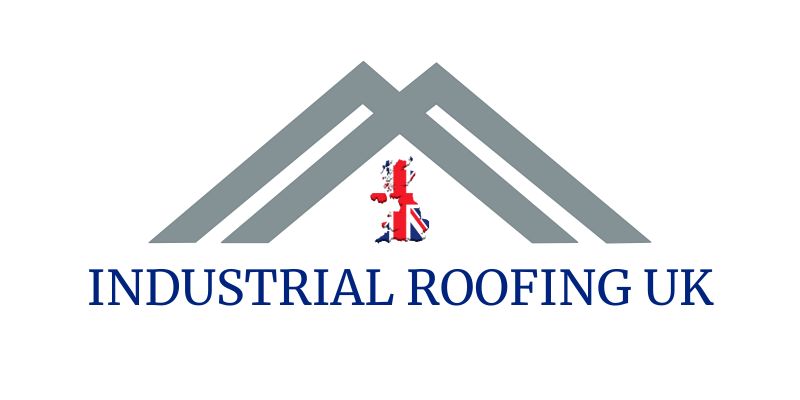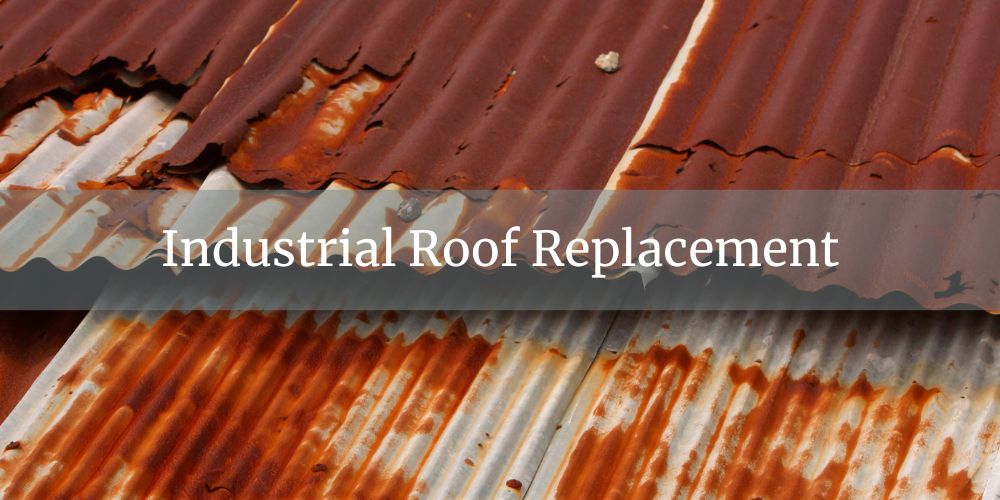Industrial roof replacement refers to the process of completely removing and installing a new roofing system for industrial buildings. This involves dismantling the old roof, addressing any underlying structural issues, and fitting a new, robust roofing solution. The goal is to enhance the building's safety, energy efficiency, and longevity. Roof replacement is often essential when the current roof is beyond repair or has reached the end of its service life, ensuring a secure and efficient facility.
Industrial Roofing UK offer complete industrial roof replacement services across the UK, delivering durable, high-performance solutions for ageing or severely damaged roofing systems. We replace a wide range of roof types, including metal sheeting, asbestos cement, composite panels, and flat roofing systems, using modern materials that improve thermal efficiency, waterproofing, and structural integrity. Our experienced team ensures each replacement is carried out with minimal disruption to your operations, adhering to all safety and compliance standards. Whether you operate a factory, warehouse, or processing facility, we provide nationwide roof replacement services built to withstand industrial demands and deliver long-term value.
What Is An Industrial Roof Replacement?
An industrial roof replacement involves removing the existing roofing system of an industrial building and installing a new one. This procedure is necessary when the current roof is beyond repair due to extensive damage, severe wear, or structural issues. According to the National Federation of Roofing Contractors (NFRC), replacing a roof ensures the building's long-term protection and operational efficiency. The replacement process begins with a comprehensive inspection to assess the roof's condition, followed by the safe removal of the old materials.
Once the old roofing is removed, the next step involves preparing the surface and installing new, durable materials such as metal panels. The Building Research Establishment (BRE) highlights the importance of using high-quality materials and skilled professionals to ensure the new roof's longevity and performance. A well-executed roof replacement can significantly improve energy efficiency, enhance weather resistance, and increase the overall value of the property. According to industry statistics, a properly installed industrial roof can last up to 50 years, depending on the materials used and maintenance practices.
Investing in an industrial roof replacement not only addresses immediate structural concerns but also provides long-term benefits such as improved insulation and reduced maintenance costs. This proactive approach ensures the safety and productivity of the facility, protecting both the building and its operations from potential disruptions.
Have a question about an upcoming project?
How Do I Know If My Industrial Building Needs A Full Roof Replacement?
You know your industrial building needs a full roof replacement if it shows extensive damage, has surpassed its lifespan, or requires frequent costly repairs. Widespread leaks, large areas of rust and corrosion, or significant structural issues indicate the existing roof may be beyond repair. Additionally, if your roof has reached or exceeded its expected lifespan, typically 20-30 years for many industrial roofs, it might be time for a full replacement. Frequent repairs becoming increasingly necessary and expensive can also suggest a complete roof replacement is more economical in the long run.
- Extensive Damage
- Exceeded Expected Lifespan
- Frequent Repairs
1. Extensive Damage
Extensive damage is a significant sign an industrial roof needs complete replacement. Widespread leaks, large areas of rust, and major structural issues indicate the roof may be beyond repair. Such damage can compromise the safety and functionality of the building. Addressing these issues through regular repairs can become increasingly expensive. According to the National Federation of Roofing Contractors (NFRC), extensive damage often necessitates a full replacement to restore the roof's integrity and ensure long-term durability.
2. Exceeded Expected Lifespan
Industrial roof's which have exceeded their expected lifespan have a higher probability of a full roof replacement being necessary. Industrial roofs typically have a lifespan of 20-30 years, depending on the materials and environmental conditions. If your roof has reached or exceeded this age, it might be time for a full replacement. Ageing roofs are more prone to leaks, rust, and other forms of deterioration, which can compromise the building's overall performance. The Building Research Establishment (BRE) recommends regular assessments to evaluate the condition of older roofs and plan for timely replacement.
3. Frequent Roof Repairs
Frequent roof repairs are an indicator an industrial roof replacement might be more economical. If your roof requires constant patching and fixing, the costs can add up quickly, making ongoing repairs less viable. Persistent issues suggest underlying problems that simple repair cannot solve. According to industry experts, replacing the roof can provide a long-term solution, saving money and reducing disruptions. Investing in a new roof can improve the building's efficiency and reliability, avoiding the hassle of continual maintenance.
Is There An Alternative To Having A Full Industrial Roof Replacement?
Yes, there are several alternatives to a full industrial roof replacement which can be more cost-effective and less disruptive. These include roof restoration, partial replacement, and installing a new roof overlay. Each option can address specific issues and extend the roof's lifespan without requiring a complete overhaul.
- Industrial Roof Restoration
- Partial Replacement
- Industrial Roof Overlay
1. Industrial Roof Restoration
Roof restoration involves repairing and recoating the existing roof to extend its lifespan. This process addresses issues such as leaks, minor damage, and general wear and tear. By applying a new protective coating, the roof's energy efficiency can be significantly improved, reducing cooling costs by up to 20%, according to the Energy Saving Trust. Roof restoration is an economical alternative to a full replacement, providing enhanced durability and performance without the disruption of a complete overhaul.
2. Partial Replacement
Partial replacement involves replacing only the damaged sections of the roof rather than the entire structure. This method is particularly effective for industrial roofs where damage is localised. By targeting specific areas, substantial savings can be achieved compared to a full replacement. According to the National Federation of Roofing Contractors (NFRC), partial replacements can extend the functional life of the roof by up to 10-15 years. This approach minimises downtime and maintains the overall integrity of the roofing system.
3. Industrial Roof Overlay
An industrial roof overlay adds a layer of roofing material over the existing roof. An overlay enhances the roof's durability and provides additional protection against environmental factors. Overlays are typically applied using industrial roof coatings. These coatings can be applied to industrial roofs regardless of material, this makes overlays a versatile solution. The Building Research Establishment (BRE) notes that a well-installed overlay can extend the lifespan of the roof by up to 20 years. Roof overlays are a solution which avoids the need for a complete replacement. Roof overlays are a cost effective solution to defective roofs on both industrial and commercial buildings.
How Much Does Industrial Roof Replacement Cost?
Industrial roof replacement typically costs between £75 to £164 per square metre (sqm). The cost can vary depending on the type of materials used, the size of the roof, and the complexity of the installation process.
| Service | Cost Range |
|---|---|
| Industrial Roof Replacement | £75 to £164 per sqm |
*These estimates are general and actual costs can vary based on specific project requirements, location, and market conditions.


